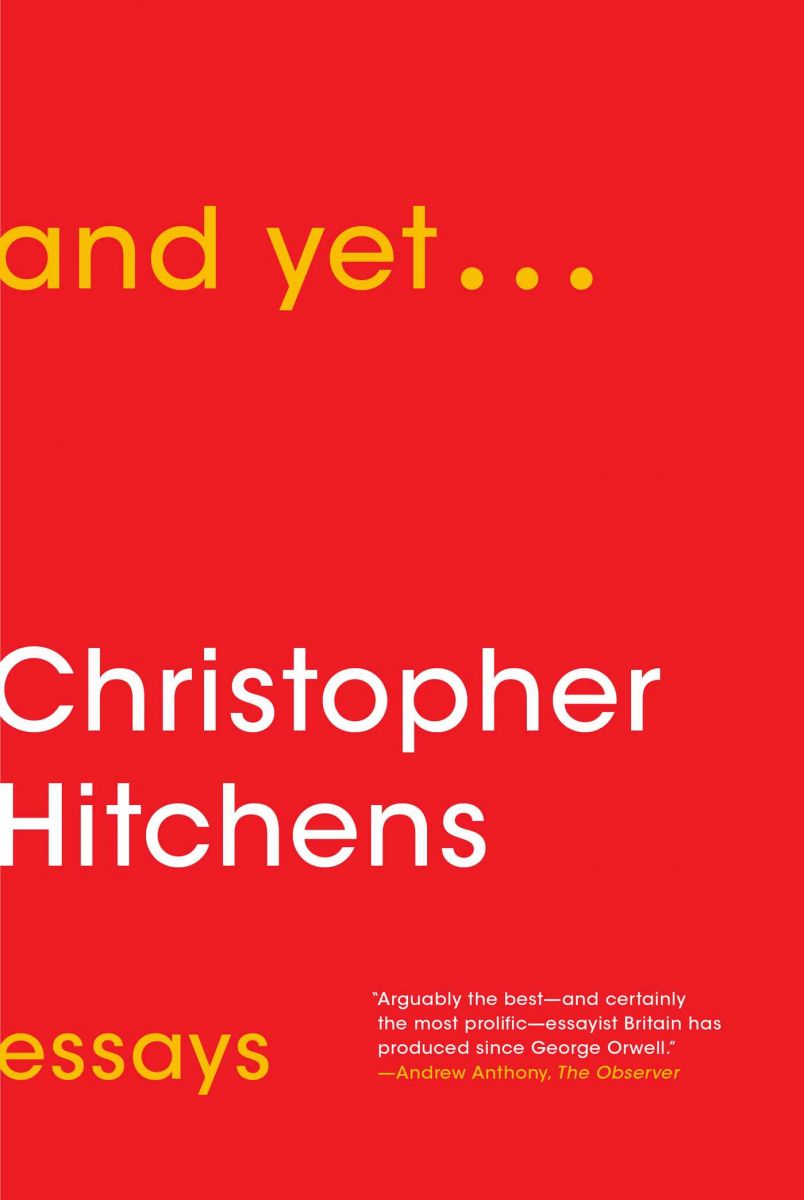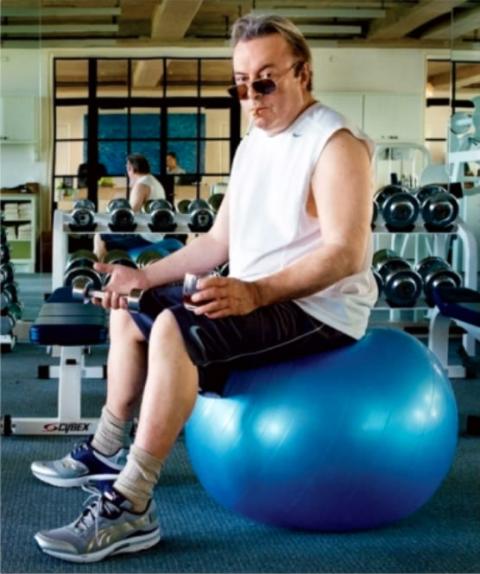By Christopher Hitchens
Simon & Schuster, 352 pages
Hardcover: $30.00
November 24, 2015
ISBN-10: 1476772061
ISBN-13: 978-1476772066
Christopher Hitchens was the ultimate champagne socialist, though as his career progressed the champagne gradually took over from the socialism. Known in his student days as Hypocritchens for his habit of marching for the poor and dining with the rich, he was a public school renegade in a long English tradition of well-bred bohemians and upper-class dissenters. Had he been born a little earlier, he might well have been a raffish spy propping up the bar of a Pall Mall club.
Like a querulous infant, he wanted everything and he wanted enormous helpings of it. He moved with aplomb from squatting in Afghan caves to holding forth about Saul Bellow at New York dinner parties, and endured a number of forms of torture, from being experimentally waterboarded to being thwacked on the backside by Margaret Thatcher. (He once actually voted for her, though whether this was out of masochistic gratitude for the walloping or because she sank the Belgrano is hard to say.) He also spent his life courting anybody who was anybody. It wasn't easy to do this while maintaining his public image as a scourge of the governing powers, but the Great Contrarian had long experience of such duplicity. His desire to belabour the establishment was matched only by his eagerness to belong to it. Fearless, self-admiring, effortlessly eloquent and assiduously self-promoting, he combined the pugnacity of a Norman Mailer with the wit of an Oscar Wilde.

This is the last posthumous collection of Hitchens's essays we are likely to see. It is an odd title, suggesting the kind of judicious, impartial "on the other hand" that was not at all Hitchens's style. The other hand was not his most prominent body part, though it can occasionally be glimpsed. In an echo of his Marxist past, when he and I used to leaflet an Oxford car factory together, there is an essay here heaping lavish praise on Rosa Luxemburg. He could also savage the Israelis as ruthlessly as he railed against God or Saddam Hussein, figures between whom he found it hard to distinguish. If he celebrated gung-ho imperial adventures that blew the heads off Arab children, he was equally keen on digging out mendacity in high places. A minor example of this lie-detecting crops up in an enjoyably vicious essay here on Hillary Clinton, who on meeting Sir Edmund Hillary informed him that her mother had named her after him (Clinton was six when Hillary climbed Everest in 1953).
For the most part, however, Hitchens was a ferociously partisan thinker. Few journalists, for example, have written with such passion and rancour about corrupt Arab regimes. It is just that his polemics against the Arabs would have sounded a lot more convincing had he not also dismissed the concept of Islamophobia as a liberal fantasy and compared the burqa to the Ku Klux Klan hood. He was that self-contradictory creature, a hawkish liberal, which meant that he harboured some admirable principles and championed some nasty causes. His support for western intervention in Iraq, the Falklands and elsewhere allowed him to combine his leftwing hatred of despotism with the values of his posh military background, not to speak of his extravagantly idealised view of the American way of life. The fact that his father was a military man is not entirely irrelevant to his thirst for Muslim blood, or to his belief that joining the army was an excellent way for African-American youths to integrate with US culture. He moved from being a practising Trotskyist (though he never really practised enough to get good at it) to cosying up to the Washington neocons.
And yet . there are few journalists who can match the verve and panache of Hitchens's prose. He mixes the loquaciousness of the barfly with the fluency of the literary artist, and could not pen a dull sentence if he tried. Despite this virtuosity, the essays collected here are notably slighter than his usual output. A number of the political articles are too much Washington parish pump stuff to be really worth reprinting. There is a thinnish piece on Dickens, which reminds his more sentimental admirers of his yearning to exterminate rebels against British rule in India, along with a blistering assault on VS Naipaul. An essay on Ian Fleming, who discussed a number of demented schemes for the execution of Fidel Castro with President Kennedy, portrays him as "a heavy sadist and narcissist and all-round pervert" with a particular penchant for the human bottom. Hitchens's old mate Salman Rushdie is predictably acclaimed, while those who feel dismayed that George Orwell once handed a list of communist sympathisers to the British government are just as predictably mauled. There is a good-humoured tirade against Christmas, in the course of which Hitchens wonders whether the feast might violate the US constitution, as well as an essay on Arthur Schlesinger that rejects his view of Richard Nixon as "the greatest shit in 20th century American politics". Surely, Hitchens protests, there was nobody to match his "combination of sanctimoniousness and squalor" in the 19th century either.
Hitchens could be pompous, arrogant and bellicose, with more than a dash of the western supremacist about him. He could also be irresistibly funny. He writes elsewhere of the "poxed and suppurating" JFK that his life was remarkable not for being cut short but for lasting so long. George W Bush, he comments, has eyes set so close together that he could use a monocle rather than glasses. Prince Charles he dismisses as a "morose, bat-eared and chinless man, prematurely aged, with the most abysmal taste in royal consorts".
The most hilarious pieces in this volume concern his bungling attempts to lick into shape a body that he compares to a burst horsehair sofa cushion or a condom hastily stuffed with an old sock. Along with a face that looks as though it is crumbling to powder like a dandruffed scalp, he has, he tells us, a "thickly furred chest, that, together with a layer of flab, allows [him] to face winter conditions with an almost ursine insouciance". On visiting a spa, he is painted a delicate shade of green by an expert masseuse and wrapped in foil and linen, an experience which felt like "being a steamed Chilean sea bass in the hands of a capable sous-chef".
It was, alas, all in vain, as the ciggies - Hitchens declared they were not conducive to happiness, but happiness itself - took their toll. He was so avid for life that he must have found it peculiarly hard to die. Yet the other side of his blimpishness was a remarkable courage, and he abandoned the world he couldn't get enough of with irony and good humour. It's a pity, though, that he passed into oblivion too soon to unleash his venom on Fifa. As a militant atheist, he once remarked that the only reason he would make a deathbed conversion was so that there would be one Christian less in the world. If it turns out that there's a God after all, not even the silver-tongued Christopher is going to be able to argue his way out of that one.
[Terry Eagleton is the renowned literary critic, writer and professor of English literature at Britain's Lancaster University, where he chairs its department of English and creative writing. His latest book is The Event of Literature. Among his many other works are The Gatekeeper: A Memoir and Why Marx Was Right.]


Spread the word